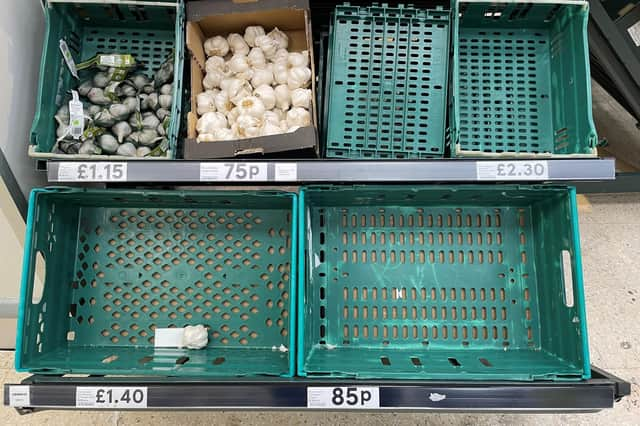Climate change: Supermarket food shortages are a warning of what life could be like in the near future – Scotsman comment


Far removed from farmers’ fields and fishing boats on the high seas, it’s easy to imagine that supermarket shelves will always be replenished however much we buy and whatever happens in the world. So the decisions by several major supermarkets to introduce rationing of fresh produce, such as tomatoes, peppers, cucumbers, cauliflowers and raspberries, may come as a shock.
There are a number of reasons for the apparently temporary supply problem, including cold temperatures, heavy rain and flooding in Morocco and similar bad weather in Spain, two countries that provide much of Britain’s winter produce. The situation is a reminder of the fundamental importance of the natural world to our way of life and, indeed, our very existence. And it is a valuable one amid the continued debate over how to respond to climate change.
Advertisement
Hide AdAdvertisement
Hide AdExtreme storms, wildfires, flooding and droughts are among the consequences of global warming that will increasingly affect crop yields the world over. The UK Climate Change Committee has said that while increased temperatures may improve yields in northern countries in the short term, they also threaten production in other parts of the world. And it warned that the net result of climate change could be a 20 per cent rise in global food prices by 2050.
And a report by the Intergovernmental Panel on Climate Change last year said: “Even in a world with low greenhouse gas emissions (warming below 1.6C by 2100), some eight per cent of today’s farmland is projected to become climatically unsuitable by 2100.” With 1.5C of warming expected to be reached sometime in the 2030s, the effects are likely to be more sudden and more profound than under that scenario.
So anyone alarmed by the sight of empty shelves but reassured by the supermarkets’ insistence that this is just a temporary problem should raise their eyes to the horizon and contemplate the near future. The effects of climate change are already beginning to be felt, but when the world starts to fully experience the “dangerous” climate change that scientists have been warning about for years, we may look back on this time of plenty and rising carbon emissions with considerable regret.
Comments
Want to join the conversation? Please or to comment on this article.